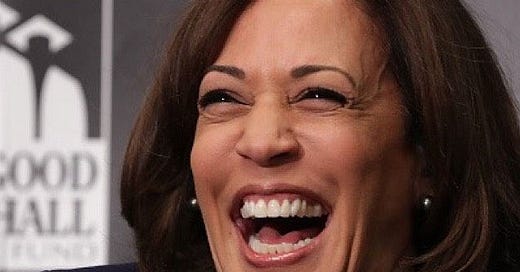I have had the pleasure and pain of being part of political campaigns that both won and lost—losing sucks. The naval gazing post-loss can be very uncomfortable, especially in a competitive district. Democrats were gazing at their navels for days after November 5th until they realized it was not in their nature. Blame someone or something, call it names; it can’t possibly be something to do with your disposition, tactics, agenda, or candidate.
Case in point.
Kamala Harris is easily one of the worst candidates ever to approach the job of president with any seriousness. Democrats know this. They wanted nothing to do with her in 2019. She had almost no support from any demographic, including people of color (it was about 1%).
When she was anointed as the only viable alternative to Donald Trump, Democrats lost.
They lost the Oval Office, the Senate, the House, the middle, and significant numbers of voters in Demographics they thought they owned. Aside from a handful of exceptions, the response to this beating has been one of anger, frustration, and finger-pointing… at voters. White women swung for Trump, so they must be racist, said with a straight if not somewhat pinched face without any recollection of how unpopular Harris was in 2019 and almost every moment up to the weeks following Biden’s staged and coordinated debate collapse (polling showed him losing by even bigger margins than the ones Harris lost by).
No one liked her, and I don’t think anyone who knows her likes her now. So, why is she still the Democrats' preference for party leader?
Despite her defeat in this year’s presidential election, Vice President Kamala Harris is still seen by most Democrats as the best leader for their party.
The latest Rasmussen Reports national telephone and online survey finds that 31% of Likely U.S. Voters believe Harris is the better leader for the Democratic Party, ahead of President Joe Biden (15%), House Minority Leader Hakeem Jeffries (12%) and Senate Majority Leader Chuck Schumer (7%). Thirty-four percent (34%) are not sure which of the current Democratic Party leaders is best.
“Not sure” beat Harris by 3 points, but that’s within the margin of error, and as names go, twice as popular as anyone else offered up, and maybe that’s the problem. Those polled, like the Democrat party, don’t know anyone else (not that the poll gave them other options).
The bench is thin, but Rasmussen should have included a few more names. Clinton, Klobuchar, Sanders, Warren. How about that tool, Gretchen Whitmer, or slick Gavin Newsom?
Illinois Governor JB Pritzker has his eye on 2028.
I’m not saying anyone polled would necessarily know who all of these people are, and that’s a problem for Democrats if any of them are thinking about a 2028 presidential run against Kamala Harris.
Given her record in primaries, I have to wonder if ‘Comma-La’ even thinks she has a chance. She’s never won one of those either, and Democrat voters will probably want to have those, and they might want them to matter—something that hasn’t happened in nearly a decade, by my calculation.
And after 2024, I don’t see the DNC anointing Harris, but no one seems to know who else there is. This means leadership needs to teach their voters some new tricks, but are they even capable of that?
A Primary will require the assembled proglodytes to pitch to their loony base, which is partly why Harris and Democrats lost in 2024. She couldn’t answer for all the crazy left-win sh*t she preached that the Biden administration (of which she was an integral part) tried to execute.
Given that this was also part of her problem, 2028 is looking good for JD Vance, especially if Trump 2.0 goes as well as Trump 1.0 (and the missing 15 million votes between every election ever and 2020 don’t find a reason to show up).
In the end, I suspect, the voters, like Dem legislators, will do as they are told. In other words, the issue is not whether Democrats learned anything; it is that they seem incapable of it.





I'm sleeping better.